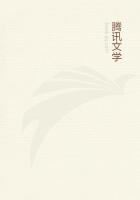Whistling her dogs to heel, Meggie shut the gate on the mob and turned the chestnut mare toward home. Nearby was a big stand of trees, stringybark and ironbark and black box, an occasional wilga on its outskirts. She rode into its shade thankfully, and having now the leisure to look around, let her eyes roam in delight. The gums were full of budgies, skawking and whistling their parodies of songbirds; finches wheeled from branch to branch; two sulphur-crested cockatoos sat with their heads to one side watching her progress with twinkling eyes; willy-wagtails fossicked in the dirt for ants, their absurd rumps bobbing; crows carked eternally and mournfully. Theirs was the most obnoxious noise in the whole bush song repertoire, so devoid of joy, desolate and somehow soul-chilling, speaking of rotting flesh, of carrion and blowflies. To think of a crow singing like a bellbird was impossible; cry and function fitted perfectly. Of course there were flies everywhere; Meggie wore a veil over her hat, but her bare arms were constantly plagued, and the chestnut mare's tail never stopped swishing, its flesh never stopped shivering and creeping for a second. It amazed Meggie that even through the thickness of hide and hair, a horse could feel something as delicate and airy as a fly. They drank sweat, which was why they tormented horses and humans so, but humans never let them do what sheep did, so they used the sheep for a more intimate purpose, laying their eggs around the rump wool, or wherever the wool was damp and dirty. The air was full of the noise of bees, and alive with brilliant quick dragonflies seeking out the bore drains, alive with exquisitely colored butterflies and day moths. Her horse turned over a piece of rotting log with a hoof; Meggie stared at its underside, her skin crawling. There were witchetty grubs, fat and white and loathsome, wood lice and slugs, huge centipedes and spiders. From burrows rabbits hopped and skittled, flashed back inside with white powder puffs up in the air, then turned to peer out, noses twitching. Farther on an echidna broke off its quest after ants, panicked at her approach. Burrowing so fast that its strong clawed feet were hidden in seconds, it began to disappear under a huge log. Its antics as it dug were amusing, the cruel spines lying flat all over its body to streamline its entry into the ground, earth flying in heaps. She came out of the timber on the main track to the homestead. A sheet of dappled grey occupied its dust, galahs picking for insects or grubs, but as they heard her coming they took to the air en masse. It was like being inundated by a magenta-pink wave; breasts and underwings soared above her head, the grey turned magically to rich pink. If I had to leave Drogheda to- morrow, she thought, never again to come back, in my dreams I'd live Drogheda in a wash of pink galah undersides .... It must be getting very dry farther out; the kangas are coming in, more and more of them .... A great mob of kangaroos, maybe two thousand strong, was startled out of its placid grazing by the galahs and took off into the distance in long, graceful leaps which swallowed the leagues faster than any other animal save the emu. Horses couldn't keep up with them.
In between these delightful bouts of nature-studying she thought of Ralph, as always. Privately Meggie had never catalogued what she felt for him as a schoolgirl crush, simply called it love, as they did in books. Her symptoms and feelings were no different from those of an Ethel M. Dell heroine. Nor did it seem fair that a barrier as artificial as his priesthood could stand between her and what she wanted of him, which was to have him as her husband. To live with him as Daddy did with Mum, in such harmony he would adore her the way Daddy did Mum. It had never seemed to Meggie that her mother did very much to earn her father's adoration, yet worship her he did. So Ralph would soon see that to live with her was far better than living on his own; for it had not dawned upon her that Ralph's priesthood was something he could not abandon under any circumstances. Yes, she knew it was forbidden to have a priest as husband or lover, but she had got into the habit of getting around it by stripping Ralph of his religious office. Her formal education in Catholicism had never advanced to discussions of the nature of priestly vows, and she was not herself in need of religion, so didn't pursue it voluntarily. Obtaining no satisfaction from praying, Meggie obeyed the laws of the Church simply because not to do so meant burning in Hell throughout eternity. In her present daydream she rambled through the bliss of living with him and sleeping with him, as Daddy did with Mum. Then the thought of his nearness excited her, made her shift in the saddle restlessly; she translated it into a deluge of kisses, having no other criterion. Riding the paddocks hadn't advanced her sexual education at all, for the mere sniff of a dog in the far distance drove all desire to mate out of any animal's mind, and as on all stations, indiscriminate mating was not allowed. When the rams were sent among the ewes of a particular paddock, Meggie was dispatched elsewhere, and the sight of one dog humping another was simply the signal to flick the pair with her whip, stop their "playing."
Perhaps no human being is equipped to judge which is worse: inchoate longing with its attendant restlessness and irritability, or specific desire with its willful drive to achieve the desire. Poor Meggie longed, quite what for she didn't know, but the basic pull was there, and it dragged her inexorably in the direction of Ralph de Bricassart. So she dreamed of him, yearned for him, wanted him; and mourned, that in spite of his declared love for her she meant so little to him that he never came to see her. Into the middle of her thoughts rode Paddy, heading for the homestead on the same course as she was; smiling, she reined in the chestnut mare and waited for him to catch up.















